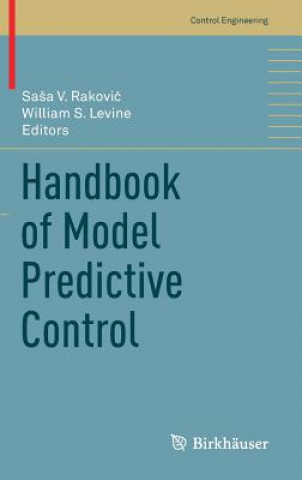
Kód: 18962070
Handbook of Model Predictive Control
Autor Sasa V. Rakovic, William S. Levine
DRAFT Current technology provides remarkable opportunities to improve control systems. A variety of computing devices-ranging from large, powerful computers, PCs, small hobbyist process computers such as the Arduino and Raspberry ... celý popis
- Jazyk:
 Angličtina
Angličtina - Vazba: Pevná
- Počet stran: 692
Nakladatelství: Birkhauser, 2018
- Více informací o knize

5391 Kč

Skladem u dodavatele v malém množství
Odesíláme za 12-15 dnů
Potřebujete více kusů?Máte-li zájem o více kusů, prověřte, prosím, nejprve dostupnost titulu na naši zákaznické podpoře.
Přidat mezi přání
Mohlo by se vám také líbit
-

Cybersecurity Information Sharing Between Public-Private Sector Agencies
381 Kč -

The Adventures of Noldo and His Magical Scooter - Noldo Faces the Hard Times: Las aventuras de Noldo y su patinete mágico - Noldo afronta los tiempos
276 Kč -
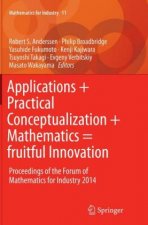
Applications + Practical Conceptualization + Mathematics = fruitful Innovation
2866 Kč -

The Profits of Religion: An Essay in Economic Interpretation
222 Kč -

How Artists See Work
356 Kč -

Der Seidenspinner
319 Kč -

Instruction Populaire Sur Le Regime a Suivre Pour Se Preserver Du Cholera-Morbus
399 Kč
Darujte tuto knihu ještě dnes
- Objednejte knihu a zvolte Zaslat jako dárek.
- Obratem obdržíte darovací poukaz na knihu, který můžete ihned předat obdarovanému.
- Knihu zašleme na adresu obdarovaného, o nic se nestaráte.
Více informací o knize Handbook of Model Predictive Control
Nákupem získáte 539 bodů
 Anotace knihy
Anotace knihy
DRAFT Current technology provides remarkable opportunities to improve control systems. A variety of computing devices-ranging from large, powerful computers, PCs, small hobbyist process computers such as the Arduino and Raspberry Pi, PLCs, FPGAs, and others-offer fast computation at affordable prices. One consequence is that almost all modern control systems are implemented digitally. Furthermore, there now exist many inexpensive communication options. Finally, the collection of sensors, and that which can be sensed in (or nearly in) real time has greatly increased. A well-known example of these technologies are the modern automobile with over 100 computers, at least two communication networks, and its extensive collection of sensors. A second example is the modern cell phone that includes-basically as throw ins-GPS, an Inertial Measuring Unit, and the ability to provide walking, driving, or public transit routes almost anywhere. There is a point of similarity between the phone and many digitally implemented control systems. Both use only a small portion of the computational capability to achieve their basic objective. There are two implications of this technology for control practice and theory. Even conventional Single-Input Single-Output (SISO) control systems might be able to use the extra computation that is available (essentially at no cost) to provide additional and improved function, just as the cell phone does. Second, improved communication and more sensing mean that large systems that were heretofore controlled by a collection of weakly, if at all, coordinated SISO systems, can now be controlled as Multi-Input Multi-Output (MIMO) systems. The design of MIMO controllers is, although there are results and we will mention one of them shortly, is still very much an open question. We are arguing that control engineers should be thinking about "computationally intensive controls" a phrase we first heard from Joao Hespanha. Model Predictive Control (MPC) is a particularly effective design method for doing computationally intensive control. It provides the possibility to improve relatively classical SISO controls and it has already proven useful in a large number of MIMO control systems. MPC remains an active research area in both theory and practice. Practicing engineers continue to push beyond the limits of our theoretical understanding, thereby increasing the importance of research into extending the theory. Because MPC is so dependent on prediction and prediction always involves uncertainty, a great deal of current and past theoretical research deals with ways to handle uncertainty such as robust MPC, stochastic MPC, and various related topics. Because MPC requires the solution of an optimization problem in a very short time, a great deal of relevant research addresses methods for solving optimization problems, both theoretically and computationally. Lastly, because applications continue to produce interesting theoretical problems as well as showing how MPC can be applied in the real world, we have included a representative selection of applications in the handbook.
 Parametry knihy
Parametry knihy
Zařazení knihy Knihy v angličtině Reference, information & interdisciplinary subjects Research & information: general Information theory
5391 Kč
- Plný název: Handbook of Model Predictive Control
- Autor: Sasa V. Rakovic, William S. Levine
- Jazyk:
 Angličtina
Angličtina - Vazba: Pevná
- Počet stran: 692
- EAN: 9783319774886
- ISBN: 3319774883
- ID: 18962070
- Nakladatelství: Birkhauser
- Hmotnost: 1234 g
- Rozměry: 163 × 241 × 48 mm
- Datum vydání: 12. September 2018
Oblíbené z jiného soudku
-

The Black Swan
306 Kč -
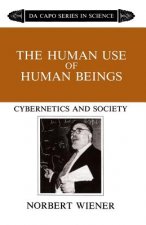
Human Use Of Human Beings
322 Kč -

Problems of Life
421 Kč -
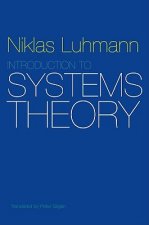
Introduction to Systems Theory
653 Kč -

Linked
530 Kč -
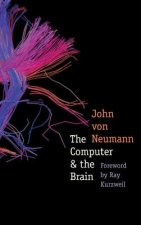
Computer and the Brain
418 Kč -

Deep Simplicity
303 Kč -

Elements of Information Theory
3230 Kč -

Sync
303 Kč -

Nonlinear Dynamics and Chaos
2347 Kč -

Introducing Chaos
249 Kč -
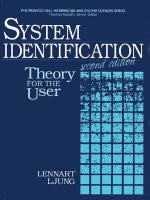
System Identification
3292 Kč -

Information Theory
740 Kč -
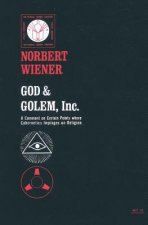
God & Golem, Inc.
1200 Kč -
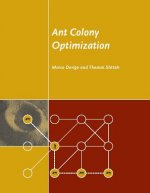
Ant Colony Optimization
256 Kč -

Recursive Universe
353 Kč -

Repair
880 Kč -
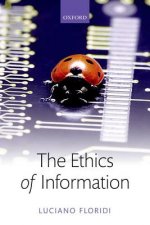
Ethics of Information
1135 Kč -

Bioinformatics: An Introduction
3313 Kč -
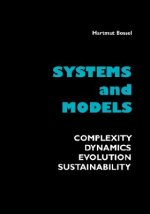
Systems and Models. Complexity, Dynamics, Evolution, Sustainability
662 Kč -
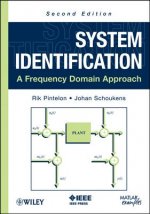
System Identification 2e - A Frequency Domain Approach
4312 Kč -
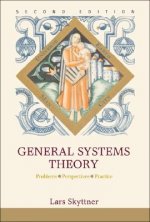
General Systems Theory: Problems, Perspectives, Practice
3667 Kč -

Modeling Business Processes
1603 Kč -

Social Life of Information
827 Kč -
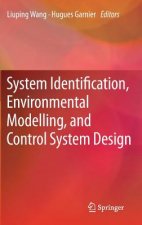
System Identification, Environmental Modelling, and Control System Design
5094 Kč -

Fault Tolerant Control Design for Hybrid Systems
3313 Kč -

Riccati Equation
3611 Kč -
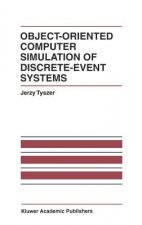
Object-Oriented Computer Simulation of Discrete-Event Systems
7468 Kč -
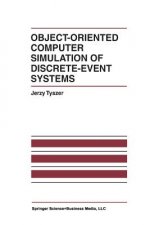
Object-Oriented Computer Simulation of Discrete-Event Systems
7468 Kč -
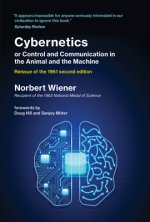
Cybernetics or Control and Communication in the Animal and the Machine
1515 Kč -

Computational Beauty of Nature
1956 Kč -
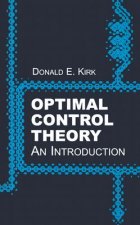
Optimal Control Theory
814 Kč -
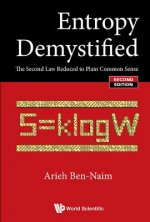
Entropy Demystified: The Second Law Reduced To Plain Common Sense
919 Kč -

Student's Guide to Coding and Information Theory
1054 Kč -
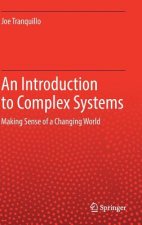
Introduction to Complex Systems
3611 Kč -

On Dialogue
4267 Kč -
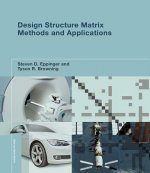
Design Structure Matrix Methods and Applications
1649 Kč -

Selected Works of Joseph E. Stiglitz
7301 Kč -
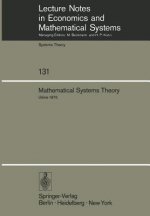
Mathematical Systems Theory
1681 Kč -
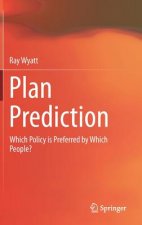
Plan Prediction
3313 Kč -
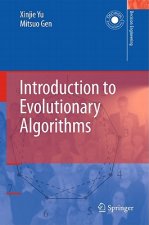
Introduction to Evolutionary Algorithms
5985 Kč -

Introduction to Cybernetics
452 Kč -

Randomness Through Computation: Some Answers, More Questions
4811 Kč -
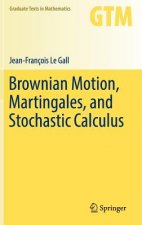
Brownian Motion, Martingales, and Stochastic Calculus
2126 Kč -

Quantum Information Theory
2588 Kč -

Seneca Effect
3017 Kč -

New Advances on Chaotic Intermittency and its Applications
3313 Kč -
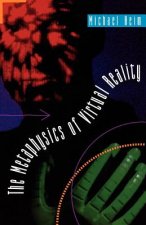
Metaphysics of Virtual Reality
1238 Kč -
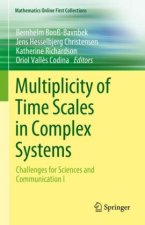
Multiplicity of Time Scales in Complex Systems
4267 Kč
Osobní odběr Praha, Brno a 12903 dalších
Copyright ©2008-24 nejlevnejsi-knihy.cz Všechna práva vyhrazenaSoukromíCookies


 Vrácení do měsíce
Vrácení do měsíce 571 999 099 (8-15.30h)
571 999 099 (8-15.30h)